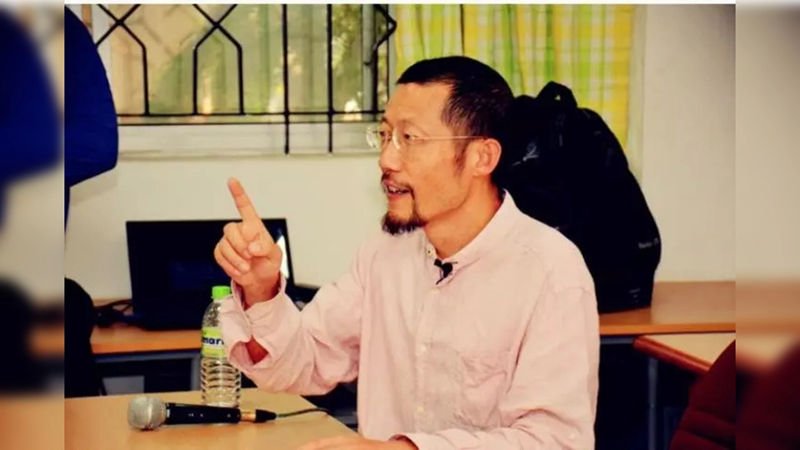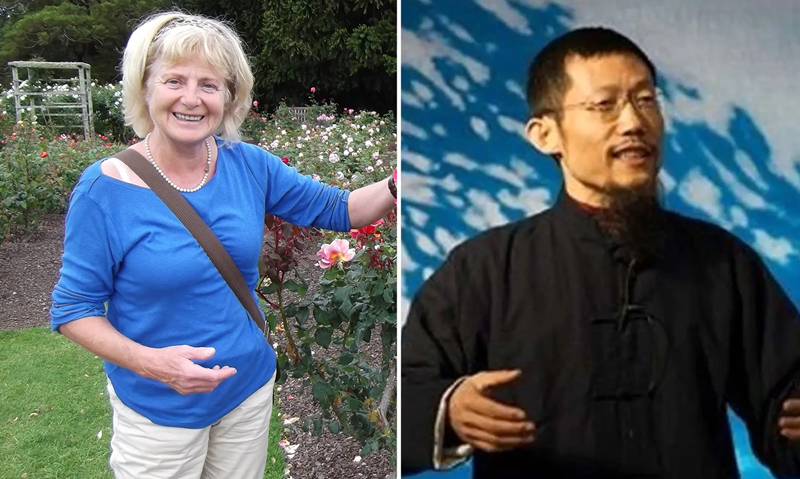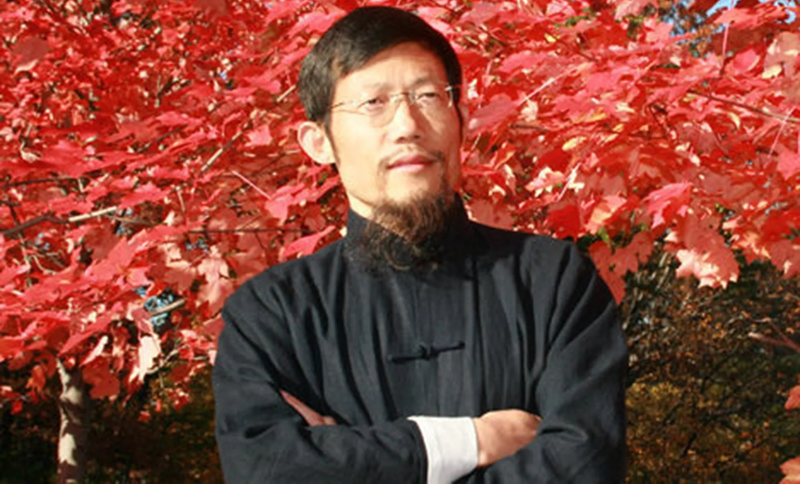An alternative therapy practitioner has been found responsible for the death of a grandmother who sought treatment for a chronic illness. The practitioner, who claimed to have natural remedies to cure various ailments, convinced the grandmother to forego traditional medical treatment and rely solely on his methods.
Despite warnings from family members and medical professionals, the grandmother put her trust in the practitioner’s promises of a cure. Unfortunately, the treatment only worsened her condition and ultimately led to her untimely death.
The practitioner’s lack of proper training and expertise in the medical field proved to be a fatal mistake for the grandmother and serves as a cautionary tale about the dangers of relying on unproven alternative therapies. The tragedy highlights the importance of seeking advice from qualified healthcare professionals and conducting thorough research before embarking on any form of treatment.
It also serves as a reminder of the potential risks involved in trusting individuals who lack the necessary credentials and experience to provide safe and effective care. Ultimately, the grandmother’s death could have been prevented if she had chosen to seek treatment from a licensed medical professional rather than placing her faith in unproven alternative therapies.

Court Ruling on Controversial Slap Therapy Case
In a recent court ruling regarding the controversial slap therapy case, the judge delivered a decision that has sparked heated debate among the public. The case involved a self-proclaimed healer who believed that slapping individuals across the face could cure their ailments.
Many supporters of the healer argued that the therapy had brought relief to numerous individuals who had exhausted traditional medical options. On the other hand, critics of the practice claimed that it was dangerous and could lead to serious injury. In the end, the judge ruled in favor of allowing the slap therapy to continue, but with strict regulations in place to ensure the safety of participants.
This decision has left both sides feeling conflicted, with some feeling vindicated in their beliefs while others feel that the court has failed to protect the public from potential harm. Regardless of one’s stance on the issue, it is clear that the court ruling on the slap therapy case has brought to light the complexities of balancing personal freedoms with the responsibility to protect the well-being of individuals. It remains to be seen how this decision will impact the future of alternative healing practices and the regulations surrounding them.
Details of the Trial and Key Evidence Presented
During the trial, the prosecution presented a wealth of key evidence that painted a vivid picture of the events leading up to the crime. Witnesses testified to seeing the defendant at the scene of the crime, providing crucial insight into their whereabouts at the time of the incident.
Additionally, forensic evidence such as fingerprints, DNA samples, and ballistics reports were presented to link the defendant directly to the crime. The prosecution also introduced surveillance footage that captured the defendant in the vicinity of the crime scene, further strengthening their case.
The defense, on the other hand, attempted to discredit the evidence presented by the prosecution, arguing that it was circumstantial and did not definitively prove the defendant’s guilt. However, the prosecution’s meticulous presentation of the evidence left little room for doubt in the minds of the jury. Ultimately, it was the overwhelming weight of the evidence presented that led to the conviction of the defendant. The trial was a testament to the power of thorough investigation and presentation of key evidence in the pursuit of justice.

Impact of the Verdict on the Alternative Medicine Community
The recent verdict has sent shockwaves through the alternative medicine community, sparking heated debates and discussions among practitioners and supporters alike. Many are concerned about the implications this could have on the future of alternative medicine and the freedom to choose one’s own healthcare practices.
Some fear that this could lead to increased scrutiny and regulations that could hinder the ability of practitioners to provide alternative treatments to those in need. Others worry about the potential stigma and backlash that could be placed on alternative medicine as a whole, leading to a loss of trust and credibility in the eyes of the public.
Despite these concerns, there are also those who see this as an opportunity for the community to come together and advocate for greater recognition and acceptance of alternative medicine practices. They believe that this verdict could serve as a catalyst for positive change and greater understanding of the benefits that alternative medicine can offer.
Overall, the impact of this verdict on the alternative medicine community remains uncertain, but it has certainly ignited a fire within its members to stand up for their beliefs and fight for their right to practice and promote alternative healing methods.
Reactions from the Victim’s Family and Public Opinion
The reactions from the victim’s family and public opinion can vary greatly depending on the circumstances of the situation. In some cases, the victim’s family may feel a deep sense of loss and grief, struggling to come to terms with the sudden and tragic loss of their loved one.
They may also feel anger and frustration towards the perpetrator, seeking justice and closure for their pain. Public opinion can also be divided, with some people expressing sympathy and support for the victim and their family, while others may question the circumstances surrounding the incident and the actions of those involved. Social media and news outlets can amplify these differing opinions, leading to heated debates and discussions about the incident.
Regardless of the reactions, it is clear that incidents of harm and violence can have a profound impact on both the victim’s family and the broader community, highlighting the need for empathy, understanding, and support for those affected. Ultimately, the reactions from the victim’s family and public opinion can serve as a reflection of the broader societal values and beliefs surrounding justice, accountability, and compassion in the face of tragedy.

Future Implications for Practitioners of Unconventional Therapies
The future implications for practitioners of unconventional therapies are uncertain and complex. As these therapists continue to push boundaries and explore new forms of healing, they may face challenges in gaining acceptance and legitimacy within the traditional medical community.
This could lead to increased scrutiny and regulation from governing bodies, potentially limiting the freedom and autonomy of these practitioners. On the other hand, the growing interest in alternative and complementary therapies among the general public could create new opportunities for these practitioners to expand their reach and impact.
As more people seek out non-traditional forms of healing, there may be a shift in the way unconventional therapies are perceived and integrated into mainstream healthcare practices. This could open up new avenues for collaboration and partnership between conventional and unconventional practitioners, leading to a more holistic and inclusive approach to healthcare.
Ultimately, the future of unconventional therapies will depend on how practitioners navigate these challenges and opportunities, as well as how they continue to innovate and evolve in response to changing societal attitudes and needs. It will be interesting to see how this dynamic field continues to unfold in the years to come.

